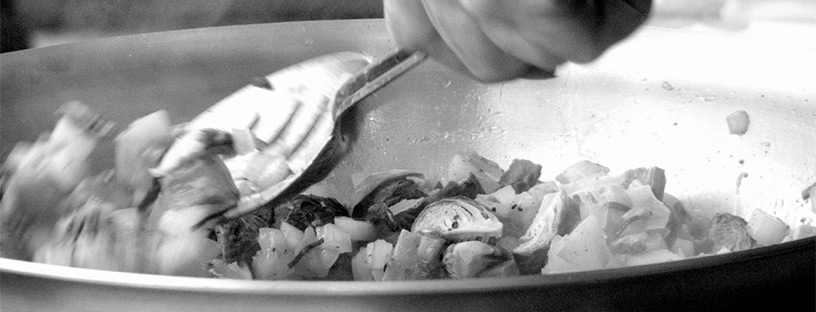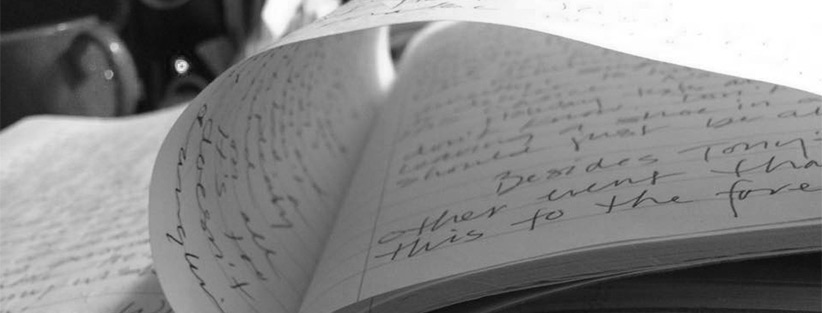I find it hard to believe that these people aren't actually flesh and blood, they are so real to me after a decade of telling their story.

An excerpt from:
A Place at the Table
Michael took a wooden cigar box from the drawer of his bedside table, and sat down at the Formica table next to the window. He lifted out a small stack of photographs and set them to one side. He smiled as he picked up a Willie Mays baseball card that he his father had given him for his tenth birthday. There were his army dog tags, his purple heart medal, some Vietnamese coins. He picked up each one and turned them over in his fingers before gently replacing them. Then he picked up the small stack of photographs. He moved through them slowly, one by one: A faded photograph of his parents standing together in front of horse corral on the ranch where he’d grown up; Adriane and their infant daughter Bea, a photo that he had taken of them sitting on their porch swing, the day before he was deployed to Vietnam. He stared at it for a long time before he set it to one side. There was one of the crew of construction workers he’d worked with in Utah, lined up in front of the house they spent a summer building; Celeste, a pretty redhead he’d met at a flea market in Colorado, who had convinced him to stick around there for a few more months. There was a few more of friends and lovers from over the years that he flipped through more quickly. He stopped at one of Frank and Anna, sitting at the table where they had shared Sunday dinner almost every week since he’d arrived in Nevada a decade ago. This one he also set to the side.
Then, one last polaroid. He looked at the younger version of himself and the woman beside him, from so many lifetimes ago, and placed it to the other side of the table, next to a small brass bowl. He looked out at the garden full of lush, large leaves and brightly-colored flowers. He hadn’t been in Hawaii long enough to learn the names of the plants, nor those of the birds that visited the shelf feeder hung from a shepherd’s hook near his window. One of the nurses told Michael she’d bring him some of her field guides soon, so he could learn to identify them.
He missed the dry Nevada desert, missed the whispering of the cottonwood trees next to the airstream that had been home for the last ten years, missed Frank and Anna and their regular Sunday dinners together. But he had needed to go somewhere for more experienced treatment, for a chance to come out the other side. Michael had had confidence in his oncologist, and the nurses and volunteers at the hospice house were helpful and kind - offering to bring him his meals when he didn’t have the energy or feel up to the company of going to the dining room, not trying to force him to do more or be different than who he was. He had steeled himself with expectations of having to face the chaffing feelings of being forced to be actively social, to be surrounded with a barrage of forced cheerfulness. But it hadn’t manifested that way. Everyone seemed to tacitly understand that the boundaries of privacy were to be respected, for which Michael was profoundly grateful. People spoke in quiet voices, and he appreciated the relative peace, for so often he felt so damn tired, these days. This wasn’t where he thought he was going to live out the rest of his days, but it turned out there was nothing more that could be done to slow the progression of his cancer, so the temporary stay at the hospice house had turned into his last stop.
A slight breeze came through the open window, and brought with it a sweet smell not unlike vanilla, but spicier. He closed his eyes and took another breath – shallow, so he wouldn’t cough – and smiled with appreciation.
Then he opened his eyes and looked over at the small brass bowl on the corner of the table, where he kept spare change, small stones, a piece of string, other bits out of habit he carried in his pockets. On top of the collection was a small piece of paper, folded in fourths. Michael sighed. He slowly reached out and picked it up as gently as though it were a resting butterfly. Carefully he unfolded it and smoothed it out on the table beside the polaroid. Alice’s email address. Even though she was part of the reason Michael had picked Hawaii out of his options for treatment, he still hadn’t been able to summon the courage to write to her.
What was he going to say to his youngest daughter, after thirty years? How would she react?
He reached for his laptop, at the far end of the table, set it in front of him and opened it. And, as he had so many times, he typed in her email address.
Subject line: Back from the dead, he typed.
Seriously? He thought. But he let it stand.
He turned his head and looked back toward the bird feeder, frowning.
I can’t put this off forever, I don’t have that much time.
He rubbed the bridge of his nose, sighed and took a drink of water.
He took a deep breath, managed not to cough, and started to type.



